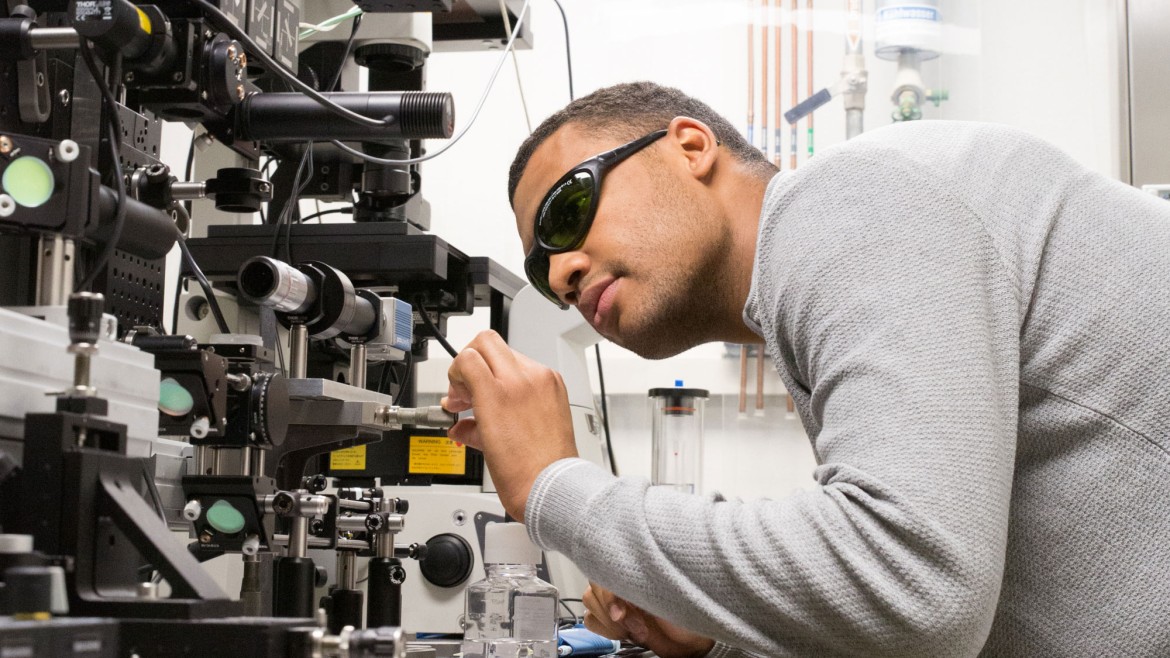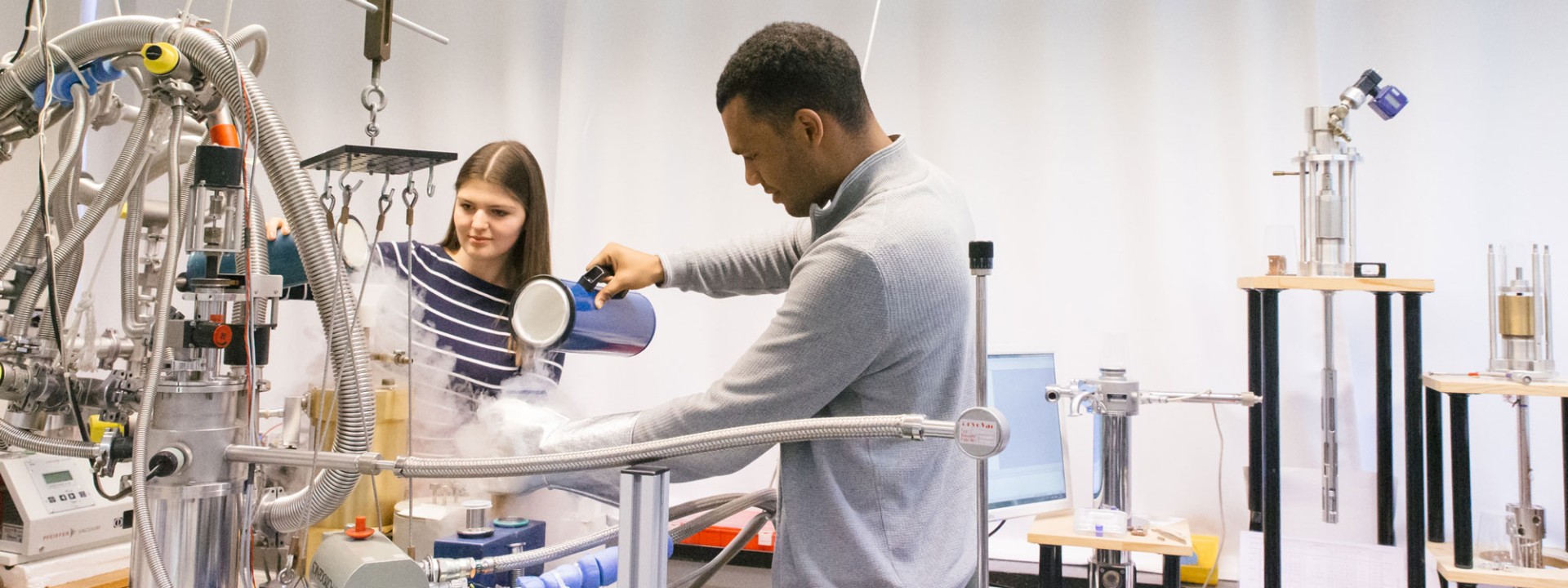Bachelor - Engineering Physics

The bachelor's degree in Engineering Physic's deals with the engineering implementation of physical knowledge into beneficial and environmentally sound processes and products.
The program is characterized by the learning and the handling of physical laws, which can be used to find optimal solutions for the respective applications.
Physical technique includes, among others
- modern technologies such as semiconductor, microsystems, laser, surface, energy or environmental technology
- the application of physical and physical-chemical measuring methods for the analysis and solution of technical and scientific problems
- the use of software and hardware for the acquisition, processing and evaluation of measurement data
- mathematical methods for computer simulation
- the evaluation of materials and chemicals in terms of sustainability and resource efficiency

With a degree in Engineering Physics you can handle demanding technical tasks and create high-tech products. The completion of a Bachelor of Science teaches you the scientific basics, which let you participate in the current technological change at the very front. Physics engineers have the right knowledge to actively shape climate protection and digitization.
As Physics Engineers, you are a sought-after specialist and have excellent earning potential.

The following table provides an overview of the structure of the program. Detailed module descriptions can be obtained by clicking on the module name. The two numbers in brackets indicate the semester hours per week (SWS, 1 SWS equals 45 minutes) and the ECTS credit points of the respective module.
The elective modules in the 6th and 7th semesters offer a high degree of flexibility and enable individual focus:
- The combination of six out of twelve currently offered compulsory elective modules results in several specializations (major courses).
- Upon request, up to two elective modules may be chosen from another Bachelor's degree program of the Department of Applied Sciences and Mechatronics or from a Bachelor's degree program from another Department of the Munich University of Applied Sciences (MUAS).
- Also on request one of the six technical elective modules can be completed with a bachelor research project work.
In the higher semesters, the insights gained are further exemplified by current examples and case studies of technical applications. By combining compulsory elective modules, different specializations can be chosen.
If you would like to plan a study abroad, we have put together an overview with partner universities that offer a number of courses that is suitable for the Engineering Physics degree program.
In the fields of semiconductor, micro- and nanotechnology or in photonics and lasertechnology, you can further develop your specialised knowledge in a following master's program offered by our department. The Bachelor's degree program and Master's degree programs are very well networked with industry-specific companies. The exchange is promoted by advisory boards.
The Industrial Advisory Board Micro- and Nanotechnology as well as the Industrial Advisory Board Photonics advise the Master's degree programs on the further development of the course of study program. For these two Master's degree programs, the Engineering Physics degree program forms an excellent basis.
In addition, there are a large number of further master's programes at the University of Applied Sciences Munich. Such a master's degree qualifies you as an equivalent to a university master for a doctorate.



